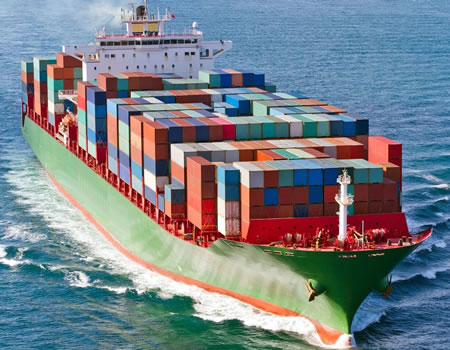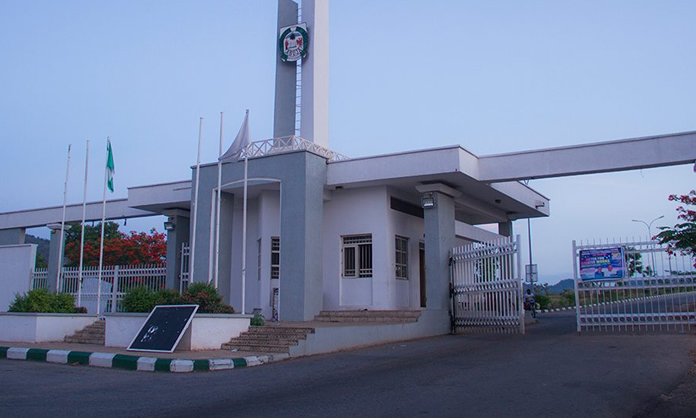INVESTIGATIONS have revealed that between 2008 and 2017, foreign shipping companies dumped a total of 425,909 containers in Nigeria, just as findings revealed that the Nigerian Ports Authority (NPA) has recently put in place measures to address this.
According to data sourced from the NPA, foreign shipping companies were leaving larger numbers of containers behind in the country compared to the numbers of containers that they departed with, thereby turning Nigeria into a dumpsite for empty containers.
Nigerian Tribune’s investigations revealed that the foreign shipping companies find it easy to dump empty containers in Nigeria because it is cheaper for them to do so as there is no sanction to deter them from leaving behind the containers with which they brought goods into the country.
This is despite the environmental challenges that the empty containers cause in the country. In 2008, 400,119 import-laden containers arrived Nigerian ports alongside 2,844 empty containers.
However, 286,497 empty containers departed Nigeria alongside 47,197 export containers in that year, thereby leaving behind 69,264 empty containers unaccounted for in Nigeria.
In 2009, the volume of containers that left the country was slightly higher than those that came in.
For that year, 416,351 import-laden containers arrived Nigerian ports alongside 177 empties while 57,830 export cargoes left the country alongside 376,276 empties, signifying an improvement in the reduction of empty containers in Nigeria as 434,106 containers left Nigeria compared to the 416,528 that arrived that year.
The records of the number of empty containers dumped in Nigeria in 2010 and 2011 were again on the rise as more containers piled up in the country than what came in.
In 2010, 430,923 import-laden containers arrived Nigeria alongside 738 empty containers. Of containers that left the country that year, 66,289 were export cargoes while 337,308 were empty containers, thereby leading to 28,069 containers left behind in Nigeria.
Also in 2011, 536,719 import-laden containers arrived Nigerian ports alongside 97 empty containers.
However, 66,202 export laden containers alongside 435,134 empty containers departed the shores of the country, leaving behind 35,480 containers in the country.
Just as it was in 2009, the year 2012 witnessed an improvement as the number of containers taken out of Nigeria was better than what came in.
In 2012, the nation’s ports witnessed the arrival of 556,900 import-laden containers alongside 273 empty containers; while 72,774 export-laden containers and 496,237 empty containers left the country, meaning of the 557,173 containers that came into the country that year, 569,011 left.
By 2013, the shipping companies quickly reverted to their container-dumping tendencies as 623,409 import-laden containers arrived Nigerian ports alongside 437 empty containers; while 79,718 export-laden containers left Nigerian ports alongside 503,225 empty containers, thereby leaving behind 40,903 containers in Nigeria.
Also, in 2014, 649,514 import-laden containers arrived Nigerian ports alongside 106 empty containers.
Only 625,023 containers left Nigeria that year as the nation exported 102,081 export cargoes while 522,942 were empties.
Thus, 24,597 containers were left behind in Nigeria in 2014 by the foreign shipping companies. In 2015, there was a slight improvement in the reduction of empty containers in Nigeria as 534,223 import-laden containers and 126 empties arrived Nigerian ports that year, while 128,687 export-laden containers and 417,627 empties left Nigeria.
That year, 546,314 containers left Nigeria compared to the 534,329 that arrived the nation’s ports.
However, in 2016, 23,901 containers got dumped in Nigeria as the country took delivery of 446,645 import-laden containers and 7,839 empties while she was only able to export 121,037 export cargoes alongside 309,546 empty containers.
In 2017, the situation got worse when a record total of 203,695 containers were dumped in Nigeria following the arrival of 442,290 units of import laden containers alongside 85,263 empty containers compared to 116,319 export cargoes that left the country alongside 207,539 empty containers that year. With more containers getting dumped in Nigeria, the NPA had to take the bull by the horn and address the imbalance.
In a press statement signed by the NPA spokesman, Olaseni Alakija, recently, the acting Managing Director of the agency, Mohammed Bello-Koko, was quoted as saying that the elimination of the Apapa gridlock could be traced to a new policy introduced by the Authority, which compelled shipping lines to ship out not less than 80 per cent of the number of containers shipped in for every voyage, be it empty containers or export cargo.
“Over time, we discovered that most of the foreign shipping lines were storing their empty containers in Nigeria, which was cheaper for them. But we have introduced a policy whereby shipping companies should take back 80 per cent of the laden containers they brought into the country from the stock of empties and export cargo. This has also reduced the number of trucks with empty containers waiting on the roads.
“What this meant in a layman’s language is that if a vessel brings 100 containers, for instance, such vessel must take back 80 containers, which must be among the empties and export containers, without which she would not be allowed to sail out of the ports,” Mohammed Bello-Koko was quoted recently in the statement.
With the NPA new policy in place, a record number of 211,096 containers were taken out of the country in 2018. That year, 285,408 units of import containers came into the country alongside 112 empty containers while 130,862 units of export containers left the country alongside 365,754 empty containers, the highest haul of containers taken out of the country since 2008.
However, speaking in favour of the foreign shipping lines, a shipping agent, who begged not to have his name in print, as he is yet to secure approval to speak on the matter explained that external factors beyond the shipping lines led to many of them leaving behind more containers compared to what was brought into Nigeria.
In the words of the shipping agent, “If you look at the data you got from the NPA, the years where more containers got left behind in Nigeria were those years when the ports in Lagos were under siege due to a chaotic traffic snarl that was threatening to shut down the ports.
“In 2017, the Apapa gridlock was at its height and shipping is time bound. It is only containers that are returned as empties that the vessels will leave with. For many of the truckers, they couldn’t access the ports due to the gridlock and thus couldn’t return empty containers. You don’t expect the ships to wait for eternity for empty containers, or do you?
“In a situation where the truckers cannot return empty containers back to the ports due to the traffic snarl, the vessels had to leave with what they have. It was a situation beyond the foreign shipping lines. It wasn’t entirely their fault,” the shipping agent told the Nigerian Tribune.
Recall that during the peak of the Apapa gridlock confusion, Container Deposits Fees of many cargo owners got eroded before most of such containers got returned back to the ports, and many containers remained unaccounted for during the confusion.







